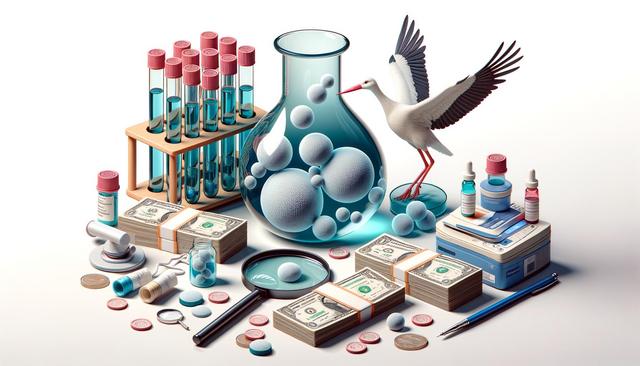Understanding the Role of a Sperm Donor
Becoming a sperm donor involves more than just a simple medical procedure—it’s a meaningful contribution to individuals and couples who rely on donor insemination to build their families. For many, the decision to donate sperm is driven by a desire to help others, while also receiving financial compensation for their time and commitment. Fertility clinics typically screen potential donors thoroughly to ensure that the donor sperm meets strict health and genetic standards. This process often includes medical history checks, physical exams, genetic testing, and semen analysis to evaluate quality indicators such as motility and morphology.
In addition to assisting those in need of reproductive support, donors benefit from learning about their own reproductive health through this detailed evaluation. The process is conducted confidentially and in compliance with medical and ethical standards, ensuring that both donors and recipients are protected throughout the journey.
How Fertility Clinics Evaluate Sperm Quality
Fertility clinics follow rigorous protocols when selecting sperm donors. The quality of the sperm plays a central role in determining eligibility and potential compensation. Sperm quality is measured by several key factors:
- Motility: The ability of sperm to swim efficiently toward an egg.
- Volume: The amount of semen produced during ejaculation.
- Morphology: The shape and structure of the sperm cells.
- Overall Health: Free from infections, genetic disorders, or other reproductive issues.
Applicants with consistently high sperm quality are more likely to be selected by a fertility clinic and may receive increased compensation. Some clinics even offer bonuses for ongoing participation or exceptional semen parameters, making regular donation a viable and rewarding option.
Legal and Ethical Considerations in Sperm Donation
Modern sperm donation is carefully regulated to ensure compliance with legal and ethical standards. Clinics operate within strict guidelines that protect both donor and recipient. Confidentiality is central to the process, and donors are typically anonymous unless otherwise arranged through known donation agreements. Clinics also ensure that donors are fully informed about the implications of their donation, including any potential future contact under evolving legal frameworks.
When searching for a “donor insemination near me” service, it’s important to choose a fertility clinic that is recognized for its ethical practices. These institutions will guide donors through informed consent procedures, provide counseling if needed, and ensure that all aspects of the donation are handled with professionalism and discretion.
Locating a Clinic and Exploring Compensation
Finding a reputable clinic to begin the donor process can be as simple as searching for a “fertility clinic” or “best paying sperm donor clinic near me.” These facilities typically have dedicated donor programs and provide all necessary resources to support new applicants. Compensation varies depending on the clinic, location, and donor qualities, but many establishments offer competitive rates with additional incentives for regular donations or above-average sperm parameters.
Before committing, potential donors should consider reaching out to multiple clinics with questions related to:
- Screening and health requirements
- Frequency of donation
- Compensation structure and bonuses
- Legal agreements and anonymity policies
This information helps ensure that the donor experience is transparent and aligned with personal expectations and comfort levels.
Preparing for a Successful Donation Experience
Those interested in becoming a sperm donor can take proactive steps to enhance their chances of acceptance and maintaining high sperm quality. Lifestyle factors significantly influence reproductive health, and clinics often recommend the following habits for prospective donors:
- Maintaining a balanced diet rich in vitamins and antioxidants
- Exercising regularly while avoiding excessive heat exposure (e.g., hot tubs)
- Reducing alcohol intake and refraining from smoking
- Getting adequate sleep and managing stress
Donors who consistently meet high standards are often presented with ongoing opportunities to contribute, which can lead to increased compensation and greater impact. Regular donors may also receive recognition or bonuses, especially at top-rated clinics that value long-term partnerships.
Conclusion: A Responsible and Rewarding Path
Sperm donation offers a unique way to support individuals and couples who are seeking to grow their families through donor insemination. With the added benefit of financial compensation, it becomes a mutually beneficial arrangement grounded in medical integrity and ethical care. Whether you’re motivated by altruism, curiosity, or the potential for earnings, becoming a sperm donor through a reliable fertility clinic is a responsible and impactful choice. When searching for a “donor sperm” program or the “best paying sperm donor clinic near me,” make sure to choose licensed institutions that prioritize donor welfare and uphold the highest standards of care.




Leave a Reply